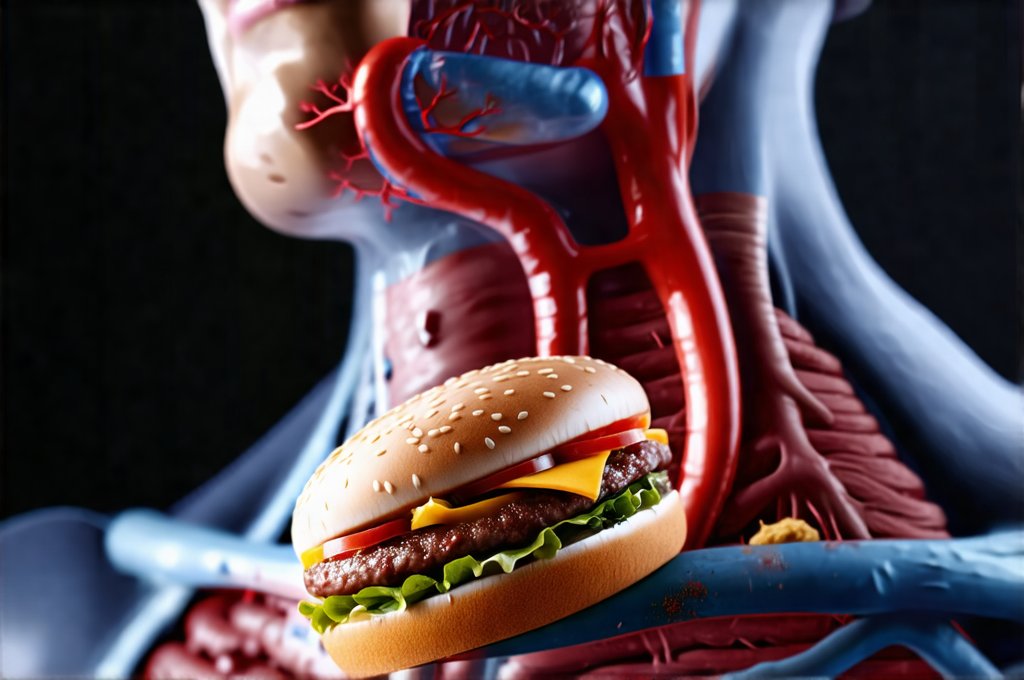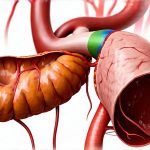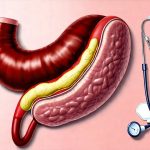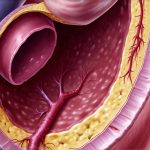The modern diet has undergone a dramatic transformation in recent decades, with fast food becoming an increasingly prominent feature in many people’s lives. Convenient, affordable, and readily available, these quick-service meals have woven themselves into the fabric of our daily routines. However, this convenience comes at a potential cost to our health, extending beyond issues like weight gain and cardiovascular disease. The esophagus, often overlooked in discussions about dietary impacts, is particularly vulnerable to the long-term effects of consistently consuming fast food. Understanding how these foods interact with esophageal function and structure is crucial for promoting preventative healthcare and making informed choices about what we eat.
The esophagus’s primary role – efficiently transporting food from the mouth to the stomach – belies a delicate system easily disrupted by dietary habits. Frequent exposure to certain components common in fast food, such as high acidity, fat content, and irritants, can lead to a cascade of physiological changes over time. These changes aren’t always immediately noticeable but accumulate gradually, potentially resulting in chronic esophageal conditions like gastroesophageal reflux disease (GERD) or even increasing the risk of more serious complications. This article will delve into the specific ways fast food consumption impacts esophageal health, exploring the mechanisms involved and emphasizing the importance of mindful dietary adjustments for long-term well-being.
The Role of Acidity & Reflux
Fast food frequently features ingredients that contribute to increased acidity in the digestive system. Think about tomato-based sauces on burgers or pizzas, carbonated beverages often paired with meals, and even the high fat content which delays gastric emptying – all factors that can exacerbate acid reflux. Acid reflux occurs when stomach acid flows back up into the esophagus, causing heartburn and potentially damaging the esophageal lining over time. The frequency of fast food consumption directly correlates to increased opportunities for these acidic events. A single instance of heartburn isn’t cause for alarm; however, repeated exposure leads to chronic inflammation and can eventually erode the protective barriers of the esophagus. Understanding how stress impacts sensitivities can also play a role in these reactions.
The lower esophageal sphincter (LES), a muscular ring at the bottom of the esophagus, is designed to prevent stomach acid from flowing back upwards. However, certain foods prevalent in fast food diets – particularly those high in fat – can relax the LES, making it easier for acid to reflux. This relaxation isn’t inherent to the LES itself but rather a physiological response to the digestive process. High-fat meals take longer to digest, putting prolonged pressure on the LES and increasing the likelihood of backflow. Furthermore, some fast food items contain ingredients that directly stimulate acid production in the stomach, compounding the problem.
The consequences of chronic acid reflux extend beyond just discomfort. Prolonged exposure to acid can lead to Barrett’s esophagus, a condition where the normal cells lining the esophagus are replaced by cells similar to those found in the intestine. Barrett’s esophagus is considered a precursor to esophageal adenocarcinoma, a relatively rare but aggressive form of cancer. While not everyone with GERD will develop Barrett’s esophagus or esophageal cancer, the risk increases significantly with prolonged and untreated reflux – highlighting the importance of proactive dietary modifications. It’s also important to consider environmental toxins that may exacerbate these conditions.
Dietary Modifications for Reflux Management
Managing acid reflux often begins with making informed choices about food. Here are some strategies to consider:
- Limit high-fat foods: Reduce consumption of fried foods, fatty meats, and full-fat dairy products commonly found in fast food meals. Opting for leaner protein sources and cooking methods (baking, grilling) can make a significant difference.
- Avoid trigger foods: Identify and eliminate foods that specifically trigger your reflux symptoms. Common culprits include tomatoes, citrus fruits, chocolate, caffeine, alcohol, and spicy foods.
- Eat smaller, more frequent meals: Overeating puts increased pressure on the LES. Breaking down your daily food intake into smaller portions throughout the day can help minimize this pressure.
Beyond specific food choices, how you eat also plays a role. Eating slowly, chewing thoroughly, and avoiding lying down immediately after eating are all helpful practices. Elevating the head of your bed during sleep can also prevent nighttime reflux, as gravity assists in keeping stomach acid where it belongs. These aren’t quick fixes but lifestyle adjustments that, when consistently practiced, contribute to significant improvements in esophageal health. Meal timing can also play a large role here.
The Impact of Fat Content & Gastric Emptying
As previously mentioned, the high fat content characteristic of many fast food items plays a crucial role in esophageal health – and not in a positive way. Fats are notoriously slow to digest, meaning they remain in the stomach for an extended period. This prolonged gastric emptying has several detrimental effects on the esophagus. Firstly, it increases the pressure within the stomach, putting strain on the LES and increasing the likelihood of acid reflux. Secondly, the delayed digestion can lead to increased gas production, contributing to bloating and discomfort.
The type of fat also matters. Trans fats, often found in fried foods and processed snacks, have been linked to inflammation throughout the body, potentially exacerbating esophageal irritation. Saturated fats, while not as vilified as trans fats, still contribute to slower digestion and increased acid production. Conversely, unsaturated fats (found in avocados, nuts, and olive oil) are generally easier to digest and less likely to trigger reflux symptoms. The sheer volume of saturated and trans fats in many fast food meals is a significant concern for esophageal health over the long term. Considering diet diversity can help mitigate some of these issues.
Furthermore, delayed gastric emptying can also disrupt the normal digestive process, leading to malabsorption of nutrients. This means your body may not be effectively absorbing essential vitamins and minerals from the foods you consume, potentially weakening your overall immune system and increasing susceptibility to illness. The cumulative effect of these factors – increased acid reflux, inflammation, and nutrient deficiencies – paints a concerning picture for those who frequently rely on fast food as a dietary staple.
Fiber Deficiency & Esophageal Motility
A diet heavily reliant on fast food is typically deficient in fiber. Fast food options rarely prioritize whole grains, fruits, or vegetables—all excellent sources of dietary fiber. This lack of fiber contributes to several issues impacting esophageal health. Firstly, fiber plays a crucial role in regulating bowel movements and preventing constipation. Constipation can increase abdominal pressure, which in turn puts strain on the LES and exacerbates acid reflux.
Secondly, fiber aids in maintaining healthy esophageal motility – the ability of the esophagus to contract and propel food downwards. Insufficient fiber intake can lead to sluggish esophageal contractions, making it more difficult for food to move efficiently through the digestive tract. This can result in feelings of fullness, bloating, and even regurgitation. A properly functioning esophagus relies on a consistent supply of dietary fiber to maintain optimal motility.
Finally, fiber has prebiotic properties, meaning it feeds beneficial bacteria in the gut. A healthy gut microbiome is essential for overall health, including esophageal health. An imbalance in gut bacteria (dysbiosis) can contribute to inflammation and increase susceptibility to digestive disorders like GERD. By neglecting fiber-rich foods in favor of fast food, individuals inadvertently compromise their gut health and potentially weaken their esophagus’s natural defenses against acid reflux and inflammation. Understanding fast eating habits can also help improve digestion. Additionally, the impact of sleep patterns on overall digestive health should be considered.
It’s important to remember that occasional indulgence in fast food is unlikely to cause significant harm. The issue arises from consistent and frequent consumption over extended periods. Prioritizing a balanced diet rich in whole foods, limiting high-fat options, and staying mindful of potential triggers are all essential steps towards protecting esophageal health and enjoying long-term digestive well-being.


















